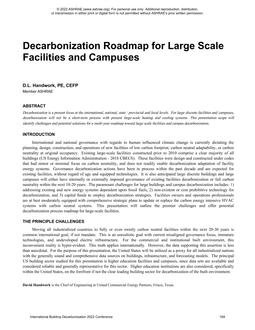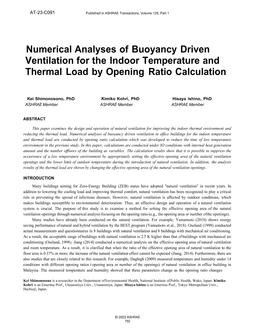
Seminar 12 — Building Envelopes as Distributed Energy Systems
This product is a zip file that contains files that consist of PowerPoint slides synchronized with the audio-recording of the speaker, PDF files of the slides, and audio only (mp3 format) as noted.
Traditional building envelopes have passive insulation systems that cannot respond and make use of the dynamic changes in the environment. Phase change material (PCM) integration into building envelopes is a recognized and well-established technique for thermal load management in buildings. Adding thermal storage to building envelopes and controlling the charge and discharge can enable substantial reduction in heating and cooling loads during peak hours. This seminar revisits concepts and challenges to utilize building envelopes as distributed energy systems and provides load flexibility and fast thermal energy management for the smart grid.
- Impacts of Variable Thermal Conductivity and Surface Heat Transfer on PCM Performance in Envelopes< /br> Paulo Cesar Tabares-Velasco, Ph.D., Associate Member, Colorado School of Mines, Golden, CO
- Challenges and Opportunities of Active Insulation Systems: How Can We Achieve Our Energy and Cost-Saving Targets?< /br> Mikael Salonvaara, Ph.D., Associate Member, Oak Ridge National Laboratory, Oak Ridge, TN
- Energy Savings and Load Flexibility Potential of PCM-Integrated Building Envelopes< /br> Ravi Kishore, Ph.D., National Renewable Energy Laboratory, Golden, CO
- Energy Conservation Measures and Thermal Management Solutions in Technical Spaces< /br> Jason Baker and Rami Saeed, Idaho National Laboratory, Idaho Falls, ID
Product Details
- Published:
- 2023
- Units of Measure:
- Dual
- File Size:
- 1 file , 81 MB
- Product Code(s):
- D-TO22Sem12

